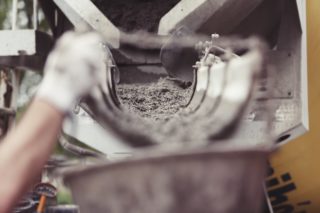-
Modified biochar as a carbon sequestration admixture for cement composites
Date posted:
-
-
Post Author
Tracey Biller
-
![]()
Researchers from Hefei University of Technology, Zhejiang University, and South China University of Technology have shown that adding biochar treated with an alkali solution to cement can enhance both the resilience of the cement itself and its ability to capture and store carbon dioxide.
In this work, biochar was produced by pyrolyzing corn straw at 300, 500, and 700 °C, and its main heterogeneous component — sedimented particles (SP) — was obtained through physical separation. Subsequently, both the original and separated biochar samples were treated with alkali to investigate their CO2 adsorption capacities. The original and separated biochar samples and CO2-saturated versions of each were also incorporated into cement composites at dosages of 1%, 2%, 3%, and 5% by cement mass to evaluate their effects on the mechanical properties and carbon sequestration performance.
The results demonstrated that separated biochar had a higher CO2 adsorption capacity than the original biochar, and this capacity increased further with rising pyrolysis temperature. Furthermore, as the pyrolysis temperature of biochar increased, its effects on cement composites led to a trend of first increasing and then decreasing hydration product formation. The CO2-saturated modified SP resulted in higher compressive strength compared to cement composites containing SP alone at a substitution rate of 1%.
The researchers conclude that future studies should further investigate the applicability of different modified biochar saturated with CO2 at higher dosages. Additionally, comprehensive long-term durability evaluations, including resistance to environmental exposures, such as sulphate attack and chloride penetration, are crucial for fully assessing the practical applicability and benefits of biochar cement composites.

